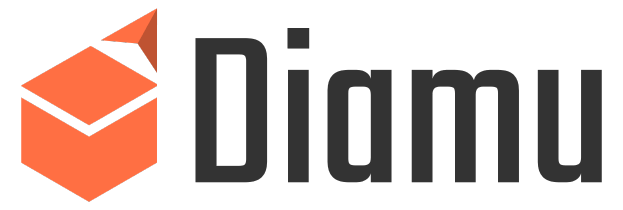News & Analysis
Trump to decide on US response to Syria gas attack ‘within 48 hours’
Donald Trump has condemned the “heinous” suspected poison gas attack in Syria and says he will make a decision on the US response within 24 to 48 hours.
Speaking to reporters as he convened his cabinet, Trump said: “We cannot allow atrocities like that” adding that he had “not much doubt” about who was behind the poison gas attack on the Damascus suburb of Douma which killed 42 people, and affected hundreds more.
“We’ll be making that decision very quickly probably by the end of the day. But we cannot allow atrocities like that,” Trump said. “Nothing is off the table,” he said, when asked if US military action was a possibility.
“If it’s Russia, if it’s Syria, if it’s Iran, if it’s all of them together, we’ll figure it out, and we’ll know the answers quite soon. So we’re looking at that very, very strongly,” Trump said, with his new, ultra-hawkish national security advisor, John Bolton, sitting directly behind him.
“As bad as the news is around the world, you just don’t see those images. We are very concerned when a thing like that can happen. This is about humanity. We’re talking about humanity.”
Trump spoke to France’s president, Emmanuel Macron, on Sunday about the Syrian chemical weapon attack and the two presidents agreed to “coordinate a strong, joint response”, according to the White House.
His comments came ahead of a UN security council meeting where Moscow will again be accused by the US and its allies of covertly endorsing the Syrian government’s repeated use of chemical weapons agains civilians.
Trump was asked if Vladimir Putin bore any responsibility for the chemical. “He may, yeah, he may,” Trump said. “And if he does it’s going to be very tough, very tough. “Everybody’s gonna pay a price. He will, everybody will.”
His remarks echoed a tweet on Sunday, in which Trump specifically criticised Putin for the first, warning that he would pay a “big price” for backing the Assad regime.
Russia insists there is no evidence of a chemical weapons attack on the rebel-held town of Douma outside Damascus at the weekend, despite reports to the contrary by medics on the ground.
It instead blamed Israel for escalating the Syrian crisis by carrying out an overnight air raid on a Syrian regime airbase. Iran says at least three Iranians were among the 14 dead in the Israeli missile attack.
With Russia in a position to wield its veto against any security council move, the US president, Donald Trump, who has been consulting with the UK and France.
The British prime minister, Theresa May, said the Syrian attack was barbaric and accused the Syrian regime of Bashar al-Assad of a brazen disregard for its own people.
“If they are found to be responsible, the regime and its backers, including Russia, must be held to account,” she said. “What we are urgently doing with our allies is assessing what has taken place.”
The US defence secretary, Jim Mattis, visiting the largest US military base in the Middle East in Qatar, said that in terms of military action he had not rule anything out right now.
Trump has signalled his intention to take some form of retribution, saying on Sunday that those responsible for the Douma attack would pay a big price.
The French president, Emmanuel Macron, spoke to Trump by phone and agreed a strong joint sresponse. In Paris, Macron held talks with Mohammed bin Salman, the Saudi crown prince who is one of the strongest backers of the Syrian opposition.
Britain’s Labour party also move closer towards blaming Assad for the attack. The shadow foreign secretary, Emily Thornberry, said: “What has happened in Douma looks to just the latest abhorrent attack in Syria using chemical weapons, a war crime for which Assad regime has bene found responsible in the past and which we utterly condemn.”
The Organisation for the Prohibition of Chemical Weapons, which is based in The Hague, expressed deep concern about the attack, saying it would launch an immediate investigation. The OPCW said: “A fact finding mission was in the process of gathering further information from all available sources to establish whether chemical weapons were used.”
The OPCW only has powers to investigate whether a chemical attack has taken place, but not to attribute responsibility. A UN-OPCW body, the Joint Independent Mechanism, did have powers to ascribe responsibility but was closed down last year after Russia vetoed its renewal.
Behind the scenes at the UN in New York diplomats are likely to test whether it is possible to reach an agreement to revive the JIM after Russian claims of flawed investigatory powers.
Russia was suggesting the Douma attack may have been a false flag operation by the Syrian rebels desperate to draw the US into the conflict against Russia. The Russian foreign minister, Sergei Lavrov, said: “Our military specialists have visited this place and they did not find any trace of chlorine or any other chemical substance used against civilians.”
The Kremlin spokesman, Dmitry Peskov, said “It’s necessary to examine very carefully what happened in Douma. And it goes without saying that without this information, making any deductions is wrong and dangerous.”
He said that it was too early to judge because “no one has exhaustive information” and no investigation has been carried out, although Russia has already sent military experts to the scene.
In a classic confrontation over the most basic facts, the Russian defence ministry said there was no evidence in any of the local hospitals of injuries caused by chemical poisoning.
Trust between Russia and the west over investigations into chemical attacks has broken down. The west accuses Russia helping Assad breach international law repeatedly during the Syrian conflict.
According to initial US intelligence assessment, Assad forces used helicopters to drop sarin gas in an attempt to oust Syrian rebels fighters from Douma.
The attack led either directly or indirectly to a Russian-brokered truce between the Syrian government and Jaish al-Islam, a coalition of Islamist rebel units, that is leading to the evacuation of thousands of fighters from the Douma.
Israel refused to confirm it was behind the overnight attack on the Syrian airbase. But unusually Lavrov said Israel was responsible, adding that it had injected a dangerous new element into the crisis. Israel has conducted previous military strikes in Syria, largely to prevent the build up of Iranian-backed Hezbollah forces




